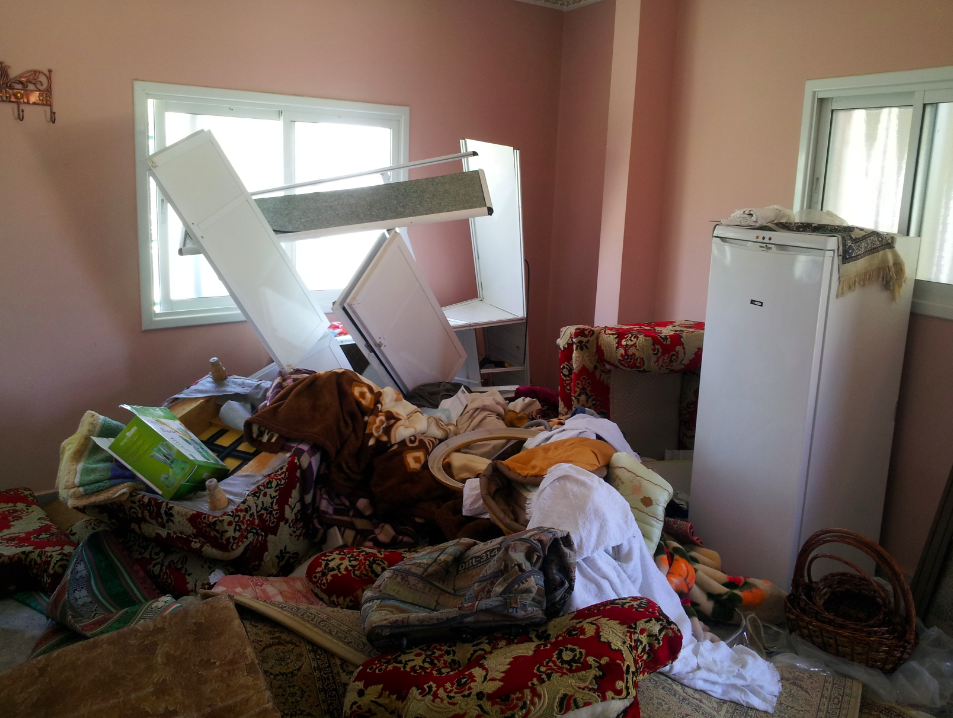Category: Reports
-
Interview with 15-year-old Awne Shamsiyeh: “the camera is like a weapon, so I can resist non-violently”
29th June 2014 | International Solidarity Movement, Khalil Team | Tel Rumeida, Occupied Palestine In Al-Khalil (Hebron) in the Tel Rumeida area, 15-year old Awne Shamsiyeh lives with his family. After the Hebron Agreement (1997), the city was divided into two areas, H1 (supposedly under full Palestinian Authority civil and security control) and H2, (under full Israeli military civil…
-
Israeli forces invade Awarta, ransacking teacher’s home
28th June 2014 | International Solidarity Movement, Nablus Team | Awarta, Occupied Palestine During the early morning hours of June 26, the Israeli army invaded the village of Awarta, 8 km south of Nablus in the northern part of the West Bank. According to witnesses, between 150 and 200 soldiers entered Awarta just after midnight and raided approximately…
-
Israeli forces invade Madama
25th June 2014 | International Solidarity Movement, Nablus Team| Madama, Occupied Palestine At 12:30 a.m. on June 22, 2014, approximately 50 Israeli soldiers invaded the village of Madama. Madama, which is located 10 km southwest of Nablus, in the northern part of the West Bank, has approximately 2000 residents. The soldiers raided close to 100 homes…


